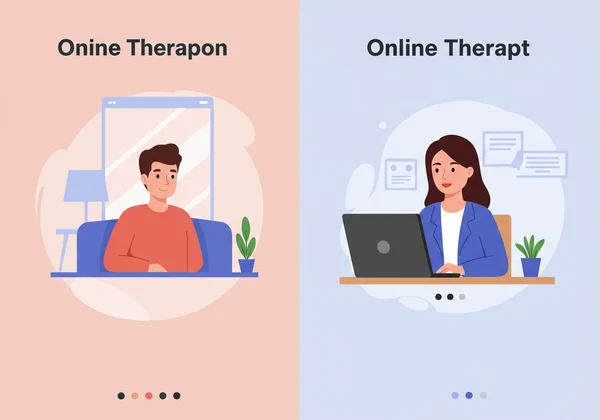Agoraphobia Test & Treatment Options: Finding Your Path to Recovery
August 10, 2025 | By Isabelle Sterling
Feeling overwhelmed by the symptoms of agoraphobia and wondering what comes next? If your world feels like it's shrinking, please know you are not alone, and there is a clear path forward. This guide explores the various professional agoraphobia treatment options available to help you regain your freedom and confidence. How do you test for agoraphobia and begin your journey? It starts with understanding your symptoms and exploring informed choices, and a great first step can be a simple online self-assessment.
This article will walk you through the effective, evidence-based treatments that have helped countless people manage their symptoms and reclaim their lives. Keep in mind that recovery is a journey, not a fixed point. Taking the time to understand your options is a significant act of self-care.

Understanding Your Agoraphobia Treatment Journey
Embarking on a treatment journey can feel daunting, but it's a structured process designed to support you every step of the way. It begins with a clear understanding of what you're experiencing, often clarified through initial screening, and moves toward building skills to manage anxiety. The goal is not to eliminate fear instantly but to learn how to navigate it so it no longer controls your life.
What Does Agoraphobia Treatment Involve?
Treatment for agoraphobia is rarely a one-size-fits-all solution. It's a comprehensive approach tailored to your unique situation. A mental health professional will typically start with a thorough assessment to understand your specific fears, the severity of your symptoms, and how they impact your daily life. This helps in understanding how you meet the agoraphobia diagnosis criteria.
From there, a treatment plan is created, which usually involves psychotherapy (talk therapy). This plan focuses on changing the thought and behavior patterns that fuel the anxiety. It’s a collaborative process where you and your therapist work together to set achievable goals for your recovery.
Why Professional Help is Crucial for Lasting Change
While agoraphobia self help strategies like breathing exercises are valuable, professional guidance is often essential for long-term recovery. A trained therapist provides a structured, safe environment to confront fears that feel too overwhelming to face alone. They offer evidence-based techniques that go beyond simple coping mechanisms.
Professionals are skilled at identifying the root causes of your anxiety and helping you build resilience. They act as a knowledgeable and supportive guide, ensuring your progress is steady and sustainable. Taking an agoraphobia screening test can be the perfect starting point to gather insights you can share with a professional.
Effective Therapies to Beat Agoraphobia
Therapy is the cornerstone of treatment for agoraphobia. Several highly effective methods are recognized for helping individuals manage their symptoms and significantly improve their quality of life. Knowing how to beat agoraphobia involves learning new ways to think and act.
Cognitive Behavioral Therapy (CBT) for Agoraphobia
Cognitive Behavioral Therapy (CBT) is one of the most effective and widely researched treatments for anxiety disorders, including agoraphobia. CBT operates on the principle that our thoughts, feelings, and behaviors are interconnected. It helps you identify and challenge the negative or irrational thought patterns that trigger your fear.
For instance, you might automatically think, "If I go into that store, I'll have a panic attack and won't be able to escape." CBT teaches you to question this thought, examine the evidence, and replace it with a more balanced one, such as, "I might feel anxious, but I have coping strategies, and the feeling will pass." This reframing helps you deeply understand what truly fuels your agoraphobia.
Exposure Therapy: Your Gradual Path to Reclaiming Life
A core component of CBT for agoraphobia is Exposure Therapy. This may sound intimidating, but it's a gentle and gradual process. Under the guidance of your therapist, you slowly and repeatedly expose yourself to the situations or places you fear in a controlled manner.
The process starts small, perhaps by simply visualizing a trip to the grocery store or standing outside your front door for a minute. Over time, you build up to more challenging situations. Each successful exposure helps reduce your fear and builds your confidence, proving that your feared outcomes are unlikely to happen. This is a practical way to improve your experience of living with agoraphobia.

Other Therapeutic Approaches and Their Benefits
While CBT is a gold standard, other therapies can also be beneficial. Acceptance and Commitment Therapy (ACT) teaches you to accept your anxious thoughts and feelings without judgment and commit to actions aligned with your values. Group therapy can also be helpful, as it provides a sense of community and allows you to learn from others with similar experiences. Understanding your baseline from an agoraphobia symptoms test can help you and your therapist decide which approach is best.
The Role of Medication in Agoraphobia Recovery
For some individuals, medication can be a helpful tool in their agoraphobia recovery, especially when used in combination with therapy. It can help reduce the intensity of anxiety and panic symptoms, making it easier to engage in therapeutic work like exposure therapy.
When Medication May Be Considered
A doctor or psychiatrist may suggest medication if your anxiety or panic attacks are severe and significantly interfere with your ability to function or participate in therapy. If the physical signs of agoraphobia, such as a racing heart or dizziness, are overwhelming, medication can help stabilize them. The decision to use medication is always a personal one, made in careful consultation with a healthcare professional.
Types of Medications Used (and Important Disclaimers)
The most commonly prescribed medications for agoraphobia are antidepressants, particularly Selective Serotonin Reuptake Inhibitors (SSRIs). These are generally considered safe and effective for long-term use. In some cases, anti-anxiety medications may be used for short-term relief.
Disclaimer: This information is for educational purposes only and is not medical advice. You must consult with a qualified medical doctor or psychiatrist to discuss your specific situation and determine if medication is an appropriate part of your treatment plan. Never start, stop, or change a medication dosage without professional supervision.

How to Find the Right Therapist for Agoraphobia
Finding a therapist you trust and feel comfortable with is a critical step in your recovery. The right therapeutic relationship can make all the difference. When you find a therapist, you are finding a partner for your journey.
Key Considerations When Choosing a Mental Health Professional
Look for a licensed professional (like a psychologist, psychiatrist, or licensed clinical social worker) with specific experience in treating anxiety disorders and agoraphobia. It is perfectly acceptable to ask about their qualifications and their preferred therapeutic approaches. A good therapist will be transparent and happy to answer your questions. An initial agoraphobia screening test can provide a useful summary to bring to this first meeting.
Resources and Tips for Finding Qualified Support
There are many reliable resources to help you find support. Professional organizations like the Anxiety & Depression Association of America (ADAA) and the National Alliance on Mental Illness (NAMI) have online directories. Your primary care physician can also provide a referral. With the rise of telehealth, using an online agoraphobia test is often a precursor to finding qualified online therapy options that can be just as effective.
Preparing for Your First Therapy Session: What to Expect
It's normal to feel nervous before your first session. Remember, this is simply a chance for you and the therapist to get to know each other. You can prepare by thinking about what you want to achieve through therapy. If you've taken an am I agoraphobic quiz or test, you might consider bringing your results to help start the conversation about your experiences.

Your Path Forward: Taking the Next Step
Taking the first step toward your agoraphobia recovery journey is a courageous act of hope. Understanding the available agoraphobia treatment options, from CBT and exposure therapy to the potential role of medication, empowers you to make informed decisions for your well-being. You can achieve recovery, and professional support is vital for navigating this path successfully.
If you are just beginning to explore your feelings of anxiety, a great place to start is with knowledge. We invite you to try our free tool. Our confidential, 2-minute self-assessment can provide you with immediate insights into your symptoms, serving as a valuable first step toward understanding your needs and finding the right path forward.
Frequently Asked Questions About Agoraphobia Treatment
Can agoraphobia be completely cured?
While "cure" might not be the right word, agoraphobia is highly treatable. With effective therapy like CBT and exposure therapy, most people can significantly reduce their symptoms, manage their anxiety, and regain the ability to live a full, unrestricted life. The goal is management and recovery, not necessarily the complete eradication of any anxious feeling forever.
How long does agoraphobia treatment usually take?
The duration of treatment varies greatly from person to person, depending on the severity of symptoms and individual progress. Some people may see significant improvement in a few months, while others may benefit from longer-term support. The focus is always on making steady, sustainable progress at a pace that feels right for you.
Is online therapy effective for agoraphobia?
Yes, for many people, online therapy (telehealth) is a very effective and accessible option for treating agoraphobia. It removes the barrier of having to leave home for an appointment, which can be a significant challenge in the early stages of recovery. Research has shown that online CBT is just as effective as in-person therapy for anxiety disorders.
What should I do if I can't leave my house to see a therapist?
If leaving the house is not possible right now, online therapy is an excellent starting point. Many therapists specialize in treating agoraphobia via video calls. Another crucial first step is to better understand your symptoms from home. Taking an online agoraphobia test can provide confidential insights that help you and your future therapist.
Are there different "levels" of agoraphobia treatment based on severity?
Absolutely. A good therapist will tailor the treatment plan to your specific needs. For mild agoraphobia, standard outpatient therapy might be sufficient. For more severe cases, a more intensive program, in-home exposure sessions with the therapist, or the initial use of medication to manage panic might be recommended.